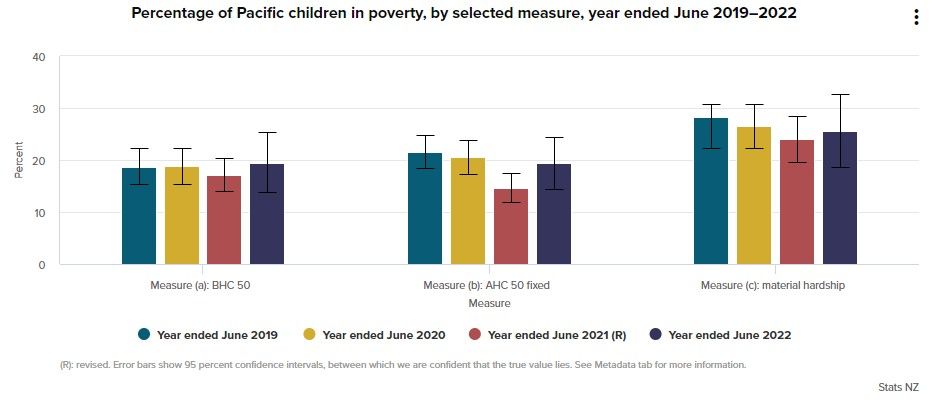

UNICEF looked at New Zealand's progress on Child Poverty
Photo/ Unicef report
Unicef: Financial top-up in child's first 5 yrs will reduce poverty
The world's leading children's organisation says families should receive financial support for a child's first five years, regardless of income.



Healing starts at home: Kainga Pasifika model challenges violent norms

Documentary portrayal of a Sāmoan author becomes deeper story about mental health



Healing starts at home: Kainga Pasifika model challenges violent norms

Documentary portrayal of a Sāmoan author becomes deeper story about mental health
The world's largest children's organisation is calling for the government to take bold action to reduce child poverty.
Unicef New Zealand is calling for the weekly best start payment to be extended from one year to five years. Chief executive Michelle Sharp says this will make a major impact on social inequities.
“Māori and Pasifika children fare worse than European children, and so do those with disabilities. So it’s not just a question of focusing on child poverty, but it’s actually focusing on the equality around child poverty.”
New Zealand is ranked 29 out of 39 countries in the OECD for child poverty rates, with Slovenia and Poland topping the list, and the United Kingdom is near the bottom, with child poverty increasing by 20 per cent in the past year.
In New Zealand, Pacific children fare worst in the poverty statistics, with 24 per cent living below the poverty line, compared to 8% of European children.

Poverty rates for Pacific children are consistently lower than all other ethnicities in New Zealand. Photo/Stats NZ
Unicef’s report ‘Child Poverty in the Midst of Wealth’ says while New Zealand has improved its international ranking for progress on child poverty, there’s still a long way to go.
The report highlights cash benefits as the most effective ways to alleviate child poverty and improving living standards by increasing the minimum wage.
The Best Start payment is currently a weekly payment of $69 for families with a newborn, and is available for the first year. Families earning under $96,295 can get the payment until the child is three.
Speaking to Levi Matautia-Morgan on 531pi's Pacific Mornings, Sharp says this should be extended to five years immediately, with a longer-term plan for a universal child payment up to age 18.
“Regardless of income, there’s a cost of living crisis and it’s expensive, and we want to be able to make sure our children are getting what they need.
“There’s evidence around the world that the first 1000 days are the most important days of a child’s life in terms of what they’re going to become as an adult, so we want to ensure that every single child that is born in New Zealand under the age of five is given that best start.”
Other recommendations include healthy, free lunch programmes in all schools, and building more warm, dry houses.
Sharp says the government needs to take bold action in future budgets and legislation so child poverty is targeted and improved on.
“Let’s make sure that we’re not using children as the ones that are going to suffer as a result of tax cuts elsewhere.”
Watch the full interview below: